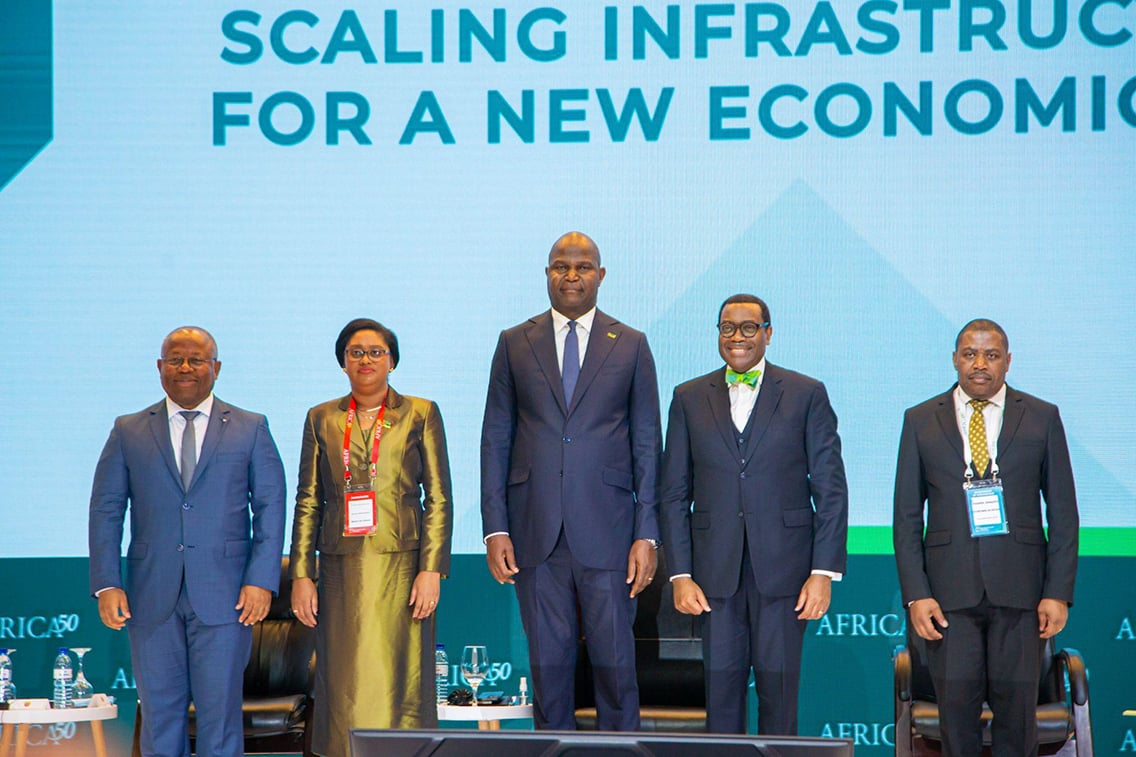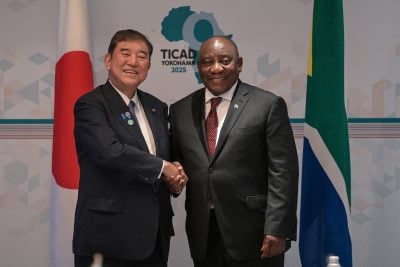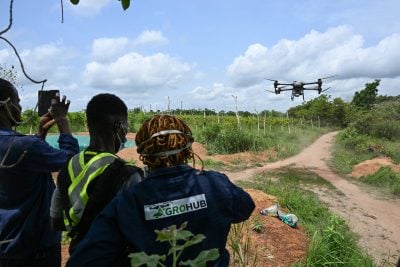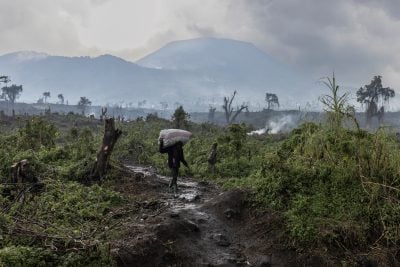This article was produced with the support of Africa50
The 2025 Africa50 General Shareholders Meeting (GSM), held in Maputo under the high patronage of Mozambican President Daniel Francisco Chapo, was more than a formal gathering of shareholders. It became a platform for transformative agreements and ambitious commitments aimed at bridging Africa’s infrastructure deficit and advancing regional integration. Hosted by the Government of Mozambique, the meeting brought together political leaders, global financiers, private investors and multilateral institutions determined to accelerate the pace of infrastructure development across the continent.
The event highlighted the urgency of mobilising resources and forging innovative partnerships to expand Africa’s power networks, digital infrastructure and trade connectivity. Africa’s infrastructure gap, estimated to cost the continent up to two percentage points of GDP growth annually, has long been recognised as one of the greatest barriers to its economic transformation. In Maputo, leaders made clear that closing that gap requires coordinated action, political will, and a platform capable of blending public and private investment at scale. Africa50, the investment vehicle created by African states and the African Development Bank (AfDB), has positioned itself as precisely that platform.
Mozambique’s strategic ambition
For host nation Mozambique, the GSM was an opportunity to demonstrate how a resource-rich African country can align domestic aspirations with continental priorities. President Chapo underscored his government’s ambition to leverage Mozambique’s significant natural resource base, particularly its gas deposits and renewable energy potential, to power both national development and regional growth.
“Mozambique is strategically located and endowed with natural resources. We intend to develop our industrial strategy by leveraging strong partnerships with the private sector and tapping into our energy resources including hydro, solar and oil and gas,” the president told delegates. He pointed to Mozambique’s membership of the Southern African Development Community (SADC) as a gateway for clean power exports across the sub-region, emphasising his commitment to pursuing industrialisation hand in hand with sustainability.
That vision was made tangible through a set of landmark agreements announced during the meeting, each designed to expand connectivity – whether through power grids, trade corridors or digital infrastructure.
Strategic agreements with transformative potential
The first breakthrough was a Project Development Agreement signed between Africa50 and Mozambique’s national utility, Electricidade de Moçambique (EDM). This partnership will deliver three high-voltage transmission lines spanning approximately 800 kilometres. Beyond improving Mozambique’s internal energy reliability, the project is expected to strengthen cross-border interconnections within southern Africa, enhancing the region’s energy security and unlocking opportunities for industrial growth.
The second major outcome was a memorandum of understanding with the African Continental Free Trade Area (AfCFTA) Secretariat. This agreement aims to create a cross-border digital solution for customs and border management. By establishing a seamless and interoperable trading system, it seeks to reduce delays at borders, lower transaction costs and facilitate the efficient movement of goods. Given that intra-African trade currently hovers around 15 percent of total African commerce, well below other regions, improved trade facilitation is critical to realising the AfCFTA’s goal of doubling intra-African trade to 25 percent by 2030.
The third agreement focused on digital public infrastructure. Africa50 and the Mozambican Ministry of Communication and Digital Transformation committed to finance and construct a new data centre in Maputo. The facility will expand the country’s digital backbone, providing essential infrastructure for e-government, fintech, cloud services and private sector innovation. In an increasingly digital global economy, such an investment is vital for competitiveness and resilience.
Taken together, the agreements showcase Africa50’s ability to mobilise capital and technical expertise in partnership with governments to deliver projects that are regional in scope, commercially viable, and catalytic for development.
Trade and connectivity at the heart of growth
Wamkele Mene, Secretary-General of the AfCFTA, underscored the centrality of infrastructure to Africa’s trade ambitions. “The cost of not connecting our countries is a lack of competitiveness, a lack of growth, a lack of employment,” he warned. Citing data from southern Africa, he argued that trade corridors demonstrably increase commerce and prosperity when efficiently managed.
“What we must now look at is enhancing the efficient movement of goods through these corridors,” Mene continued. “We must invest in the digitisation of our transport and transit systems, in both physical and soft infrastructure.” His comments echoed a wider recognition that while trade agreements can unlock potential, the absence of supporting infrastructure risks undermining their benefits.
The AfDB and Africa50’s expanding role
Dr Akinwumi A. Adesina, President of the African Development Bank and Chairman of Africa50, used the GSM platform to frame infrastructure development as Africa’s collective responsibility. Evoking the image of a baobab tree – long a symbol of resilience and community in African culture – he called for unity of purpose in financing and delivering infrastructure projects.
“To close Africa’s infrastructure gap requires that we build and scale up partnerships – joining our hands around the baobab tree of infrastructure opportunities. Together we are stronger, and Africa50 represents the strongest platform for unlocking global capital for African development,” he said.
Alain Ebobissé, CEO of Africa50, emphasised the momentum generated in Maputo and positioned the institution as the convening force for future progress. “We are here in Maputo to accelerate our collective mission: finance, develop, and deliver the critical infrastructure that will drive Mozambique’s and Africa’s economic dynamism, engineer growth, and boost its global competitiveness,” he told delegates. Ebobissé announced that Africa50 will convene the Infrastructure for Africa Forum in Mozambique in October, designed to attract global investors and innovators to scale up the commitments made at the GSM.
Looking ahead: Tanzania to host GSM 2026
The baton will pass to Tanzania in 2026, where the next Africa50 General Shareholders Meeting will be hosted. The announcement was warmly welcomed by Tanzanian officials, who view the meeting as an opportunity to showcase their own infrastructure priorities and attract further investment.
Dr Natu El-Maamry Mwamba, Permanent Secretary at the Ministry of Finance of Tanzania, said: “On behalf of H.E. Samia Suluhu Hassan, we are delighted to welcome the Africa50 GSM to Tanzania next year. We look forward to showcasing our nation’s dynamic investment potential, highlighting the bold steps we are taking to invest in infrastructure, expand connectivity, and attract long-term investment. We are also looking forward to working closely with Africa50 and its partners to accelerate the delivery of infrastructure projects within our priority sectors.”
Tanzania’s government has prioritised infrastructure as the backbone of its economic transformation, from upgrading ports and logistics networks to investing in energy and digital infrastructure. Hosting the GSM offers a unique opportunity to present these initiatives on a continental stage and deepen collaboration with both African and global stakeholders.
Towards an integrated, connected continent
The GSM in Mozambique demonstrated that African governments, private investors and development finance institutions are increasingly aligned around the need for rapid, coordinated investment in infrastructure. The agreements reached in Maputo illustrate a growing sophistication in how projects are structured – combining public and private capital, leveraging digital technologies, and ensuring regional connectivity.
The challenge now lies in implementing these agreements at speed and scale. With Africa’s population expected to reach 2.5 billion by 2050, the demand for reliable power, efficient trade corridors and robust digital infrastructure will only intensify. Success will depend on whether Africa50 and its partners can sustain the momentum generated in Mozambique, bringing projects to financial close, delivering them on the ground, and ensuring that they generate tangible benefits for communities and businesses alike.
As leaders departed Maputo, the mood was one of cautious optimism. The symbolism of Mozambique – a country seeking to harness its natural resources and geographic position to power its neighbours – was powerful. The commitment of Africa50 to convene again in Tanzania suggests that the GSM is evolving from a shareholder gathering into a continental marketplace for ideas, partnerships and investments in Africa’s future.
The agreements forged in Maputo, spanning energy, trade facilitation and digital infrastructure, may yet be remembered as a pivotal moment when African leadership and global capital converged to unlock the continent’s potential. The next chapter, to be written in Tanzania, will test whether these commitments can be transformed into lasting progress for Africa’s people.

 Sign in with Google
Sign in with Google 




